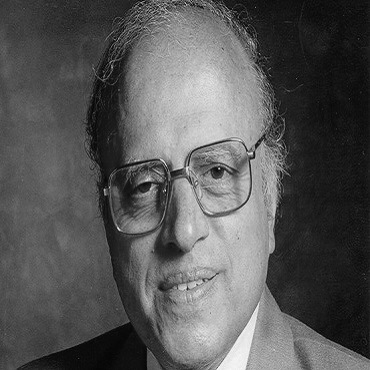
M S Swaminathan
Founder Chairman and Chief Mentor
UNESCO
India
Biography
On the occasion of the presentation of the First World Food Prize to Swaminathan in October 1987, Javier Perez de Cuellar, Secretary General of the United Nations, wrote: "Dr. Swaminathan is a living legend. His contributions to Agricultural Science have made an indelible mark on food production in India and elsewhere in the developing world. By any standards, he will go into the annals of history as a world scientist of rare distinction. "Swaminathan has been described by the United Nations Environment Programme as "the Father of Economic Ecology." He was one of three from India included in Time magazine's 1999 list of the "20 most influential Asian people of the 20th century," the other two being Mahatma Gandhi and Rabindranath Tagore. Swaminathan was the featured speaker at the 2006 Norman E. Borlaug International Symposium in Des Moines, Iowa on, 19 October 2006. He was sponsored by Humanities Iowa, an affiliate of the National Endowment for the Humanities. Swaminathan presented the "Third Annual Governor's Lecture" and spoke on "THE GREEN REVOLUTION REDUX: Can we replicate the single greatest period of food production in all human history about the cultural and social foundations of the Green Revolution in India and the role of historic leaders in India, such as Mahatma Gandhi, in inspiring the Green Revolution there by calling for the alleviation of widespread hunger. He talked about the links between Gandhi and the great Iowa scientist George Washington Carver. Swaminathan is a Fellow of the Royal Society of London, the U.S. National Academy of Sciences, the Russian Academy of Sciences, the Chinese Academy of Sciences, and the Italian Academy of Sciences.
Research Interest
M S Swaminathan Research Foundation (MSSRF) established in 1988 is a not-for-profit trust. MSSRF was envisioned and founded by Professor M S Swaminathan, agriculture scientist with proceeds from the First World Food Prize that he received in 1987. The Foundation aims to accelerate use of modern science for sustainable agricultural and rural development. MSSRF focuses specifically on tribal and rural communities with a pro-poor, pro-women and pro-nature approach. The Foundation applies appropriate science and technology options to address practical problems faced by rural populations in agriculture, food and nutrition.
